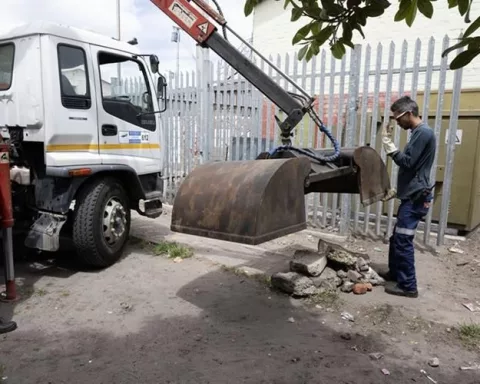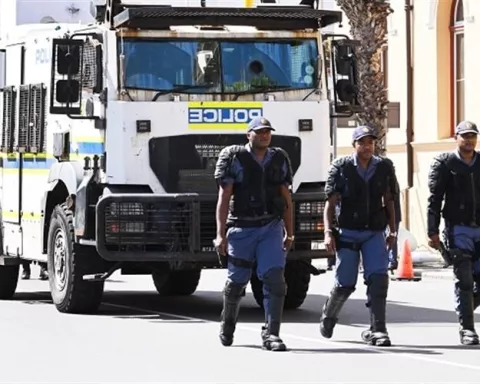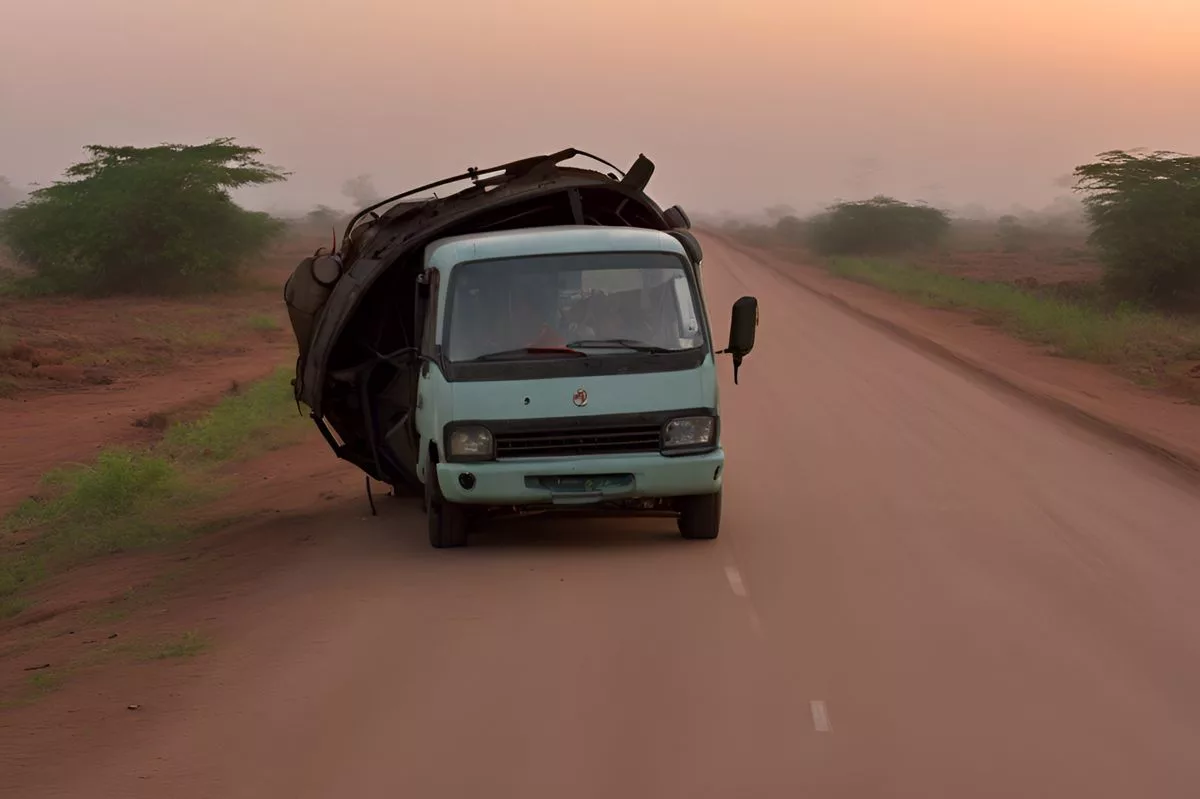In South Africa, a brave team called the Anti-Kidnapping Task Team is fighting against the scary crime of kidnapping. They work together, using smart technology and strong community support to rescue victims quickly. Recently, they saved an elderly woman and a young girl, showing how teamwork and quick thinking can make a big difference. The team also faces challenges, like dealing with criminals from other countries, but their determination is helping to make South Africa a safer place. By building trust with communities and using advanced tools, they aim to stop kidnappings and protect everyone.
What are the key strategies used to combat kidnapping in South Africa?
In South Africa, combating kidnapping involves several key strategies:
- Multi-disciplinary Task Forces: Combining efforts from various law enforcement units.
- Intelligence Operations: Utilizing intelligence for rapid response.
- Technological Advancements: Employing systems like License Plate Recognition for tracking.
- Community Engagement: Building trust and encouraging information sharing to prevent crimes.
Unraveling Complex Operations
In South Africa, a multi-disciplinary Anti-Kidnapping Task Team has made remarkable strides in combating the menace of kidnapping. Over a single weekend, this dedicated team managed to rescue two women in separate operations: an 84-year-old British national and a 20-year-old South African. These rescues underscore both the complexities and the urgent need to address kidnapping, a crime with deep historical roots that demands skilled coordination and swift action.
The task force, comprising the Provincial Organised Crime Investigation Unit, the Directorate for Priority Crime Investigation (DPCI), and Crime Intelligence, showcased exceptional teamwork in their operation in Worcester. They successfully located and rescued the elderly British woman, who had been forcibly taken on La Chasseur Road in Robertson. The kidnapping occurred on a Friday afternoon, around 12:10 pm, when she was hijacked. Utilizing intelligence operations, the team found her in an unoccupied shack in Zwelethemba, Worcester, by the following morning. After her rescue, she received immediate medical care, highlighting the team’s commitment to prioritizing victim welfare.
This operation exemplifies the critical role of intelligence and rapid response in handling kidnapping cases. These elements are essential because the chance to rescue victims diminishes with time. The task force’s swift action demonstrates their adeptness in employing effective tactics and strategies to counteract such crimes.
Confronting Challenges with Technology
In another intricate operation, the task force addressed the abduction of a 20-year-old woman in Stellenbosch. She was kidnapped on Plein Street while returning home from a restaurant early on a Friday morning. Her captors, two foreign nationals, accosted her in a vehicle and demanded a ransom from her family. The family’s quick response played a crucial role in her prompt release, highlighting the difficult choices families must make in dire situations.
This investigation benefited significantly from technological advancements, particularly the South African Police Service’s Licence Plate Recognition (LPR) system. The system traced a black BMW connected to the crime to the George area. The suspects, both young men aged 24 and 25, were apprehended in the vehicle, with undisclosed cash and the phone used for ransom demands found in their possession. These arrests underscore the indispensable role technology plays in modern policing, where rapid data analysis and vehicle tracking can lead to successful resolutions.
The suspects from the Stellenbosch case now face charges of kidnapping and extortion and will appear in the Stellenbosch Magistrates Court. Their arrest shines a light on a broader issue: the involvement of foreign nationals in local crime. This adds complexity to law enforcement efforts, often requiring international collaboration and adherence to multifaceted legal frameworks.
Kidnapping’s Deeper Implications
Kidnapping is a crime with a long and troubling history, often intertwined with political, social, and economic factors. In regions with significant economic disparities, such as parts of South Africa, it becomes a tool for exploiting vulnerabilities. This crime not only targets individuals but also their families and communities, creating waves of fear and insecurity.
Art has long depicted crime in various forms, reflecting societal concerns and attitudes. Crime fiction, for instance, delves into the psychological complexities of both perpetrators and victims, offering insights into the human condition. The inherent tension and drama in kidnapping narratives resonate with audiences, providing a perspective through which to explore justice, morality, and the societal impacts of crime.
The Anti-Kidnapping Task Team’s efforts are part of a broader mission to curb such crimes and restore a sense of safety. Their work goes beyond immediate responses, encompassing preventative measures and community engagement. Building trust within communities and encouraging the sharing of information can serve as powerful deterrents against kidnapping and similar offenses.
Building a Safer Future
As South Africa continues to develop strategies to combat kidnapping, understanding the historical and social contexts of the crime remains crucial. Lessons from history and contemporary case studies can inform effective policies and practices, ensuring law enforcement remains adaptable and successful.
The media’s role in reporting such incidents is also vital. Responsible journalism can raise awareness and foster community solidarity. However, it requires sensitivity to the privacy and dignity of victims, ensuring their experiences are treated with the seriousness they deserve and not sensationalized.
Reflecting on these recent rescues reveals that combating kidnapping requires a multifaceted approach that combines swift action, technological innovation, and strong community ties. The successful outcomes of these operations demonstrate the potential for positive results when these elements align. Yet, the ongoing challenge remains: to address the root causes of crime, creating a society where safety and security are accessible to all.
“`markdown
What is the Anti-Kidnapping Task Team in South Africa?
The Anti-Kidnapping Task Team is a dedicated unit in South Africa focused on combating kidnapping. This multi-disciplinary team comprises various law enforcement units, including the Provincial Organised Crime Investigation Unit, the Directorate for Priority Crime Investigation (DPCI), and Crime Intelligence. Their goal is to quickly rescue victims and address the complexities of kidnapping through teamwork, advanced technology, and community support.
How does the team utilize technology in their operations?
The team employs technological advancements such as the South African Police Service’s Licence Plate Recognition (LPR) system to track vehicles involved in kidnappings. This technology enhances their ability to respond rapidly and effectively to incidents, as seen in the recent rescue of a young woman in Stellenbosch, where the LPR system played a crucial role in tracing the suspects’ vehicle.
What challenges does the Anti-Kidnapping Task Team face?
The task team encounters several challenges, including dealing with criminals from other countries and navigating the complexities of international law enforcement. Additionally, the team must address the broader implications of kidnapping, which often exploits social and economic vulnerabilities within communities, making it a persistent and multifaceted issue.
How does community engagement contribute to combating kidnapping?
Building trust with communities is vital for the Anti-Kidnapping Task Team. By encouraging information sharing and fostering community solidarity, they create powerful deterrents against kidnapping. When communities are actively involved, they can assist in identifying suspicious activities and provide critical information that aids in swift responses to kidnappings.
What recent successes has the Anti-Kidnapping Task Team achieved?
Recently, the team successfully rescued an 84-year-old British woman and a 20-year-old South African woman in separate operations. These rescues highlight the importance of teamwork, intelligence operations, and rapid responses in combating kidnapping. The team’s ability to act quickly can significantly increase the chances of rescuing victims, as illustrated in these high-stakes situations.
Why is it important to understand the historical context of kidnapping in South Africa?
Understanding the historical and social contexts of kidnapping is crucial for developing effective strategies to combat the crime. Kidnapping is often intertwined with economic disparities and social issues, making it essential for law enforcement to address the root causes. Additionally, responsible media reporting can help raise awareness and foster community solidarity while treating victims’ experiences with the dignity and seriousness they deserve.
“`












